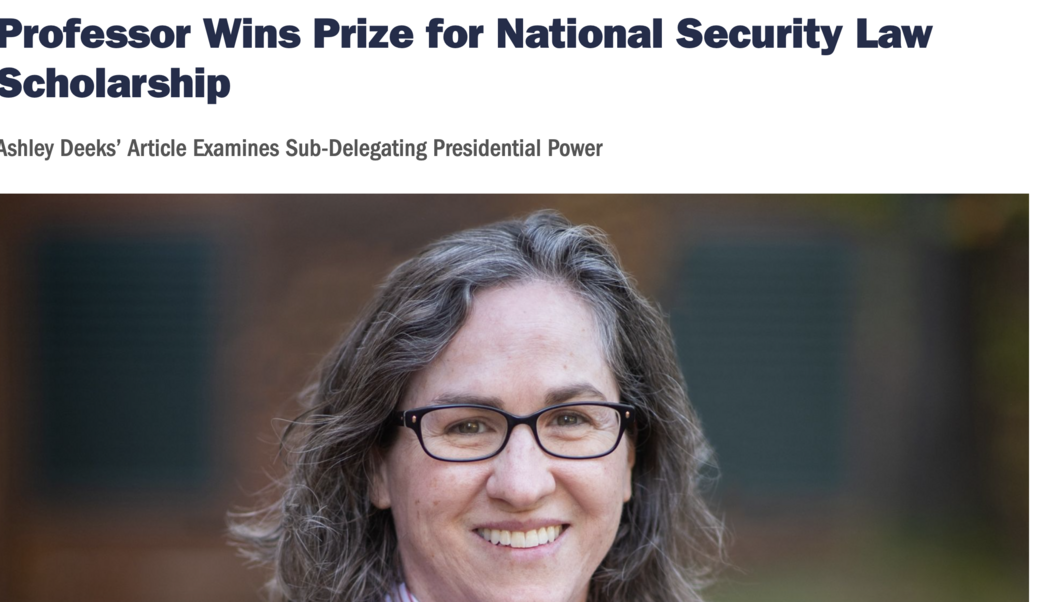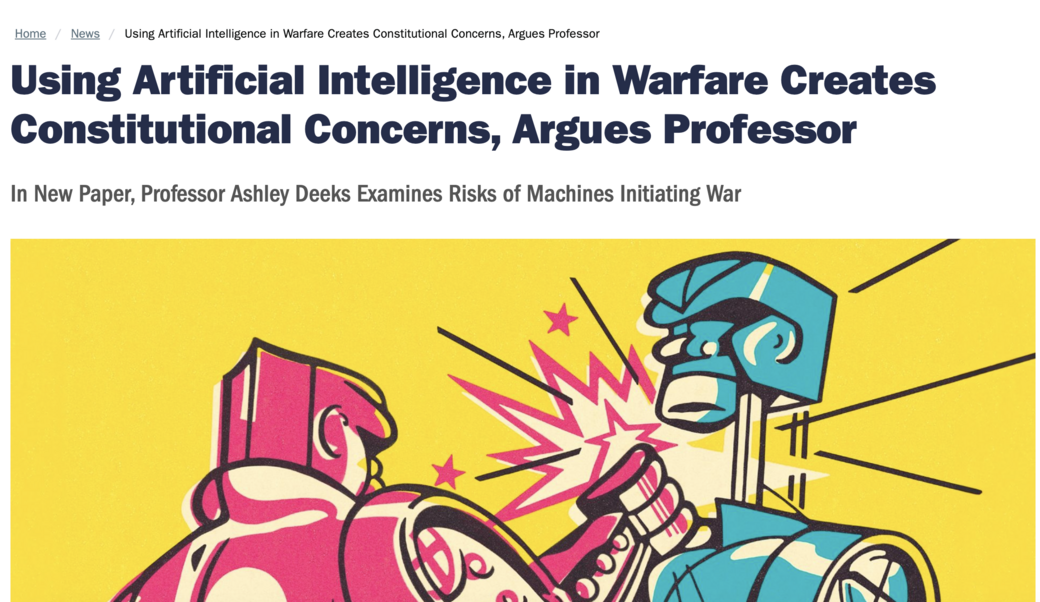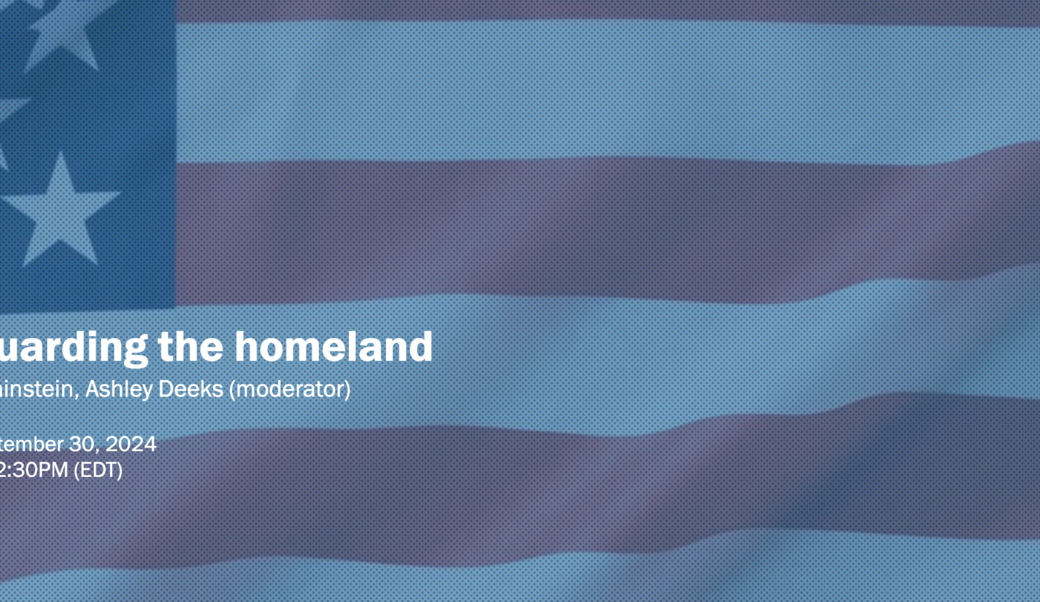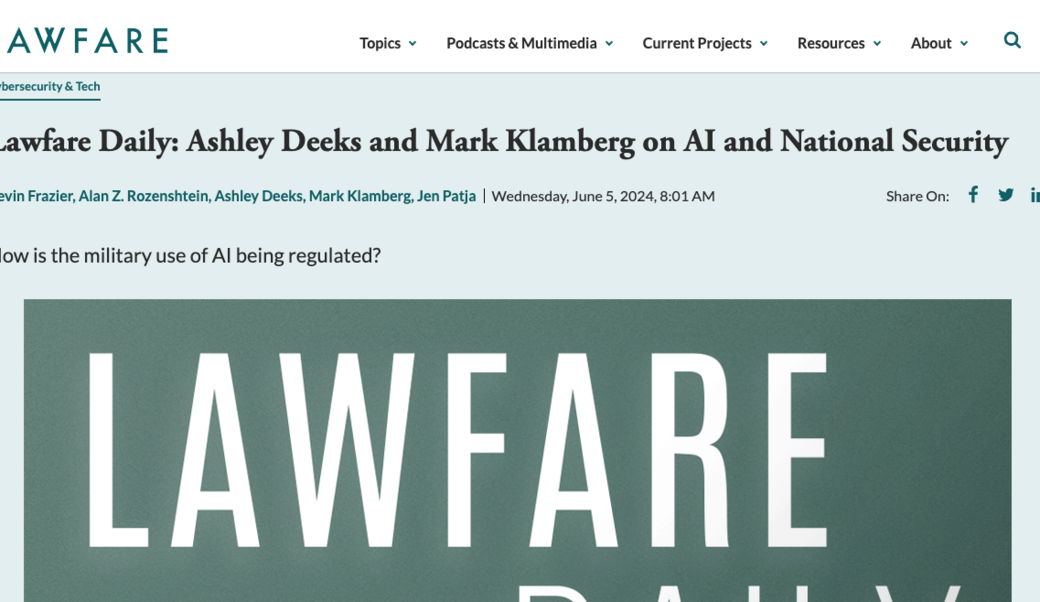Fast Facts
- Served in the Biden Administration as White House associate counsel
- Member, U.S. State Department Advisory Committee on International Law
- Member, board of editors, American Journal of International Law
- Senior fellow, Lieber Institute for Law and Land Warfare
- Expertise on international law and litigation, national security law, terrorism
Areas Of Expertise
- Foreign Affairs
- American Defense and Security
- War and Terrorism
- Domestic Affairs
- Law and Justice
Ashley Deeks is the Class of 1948 Professor of Scholarly Research in Law at the University of Virginia School of Law, which she joined in 2012 after two years as an academic fellow at Columbia Law School. Her primary research and teaching interests are in the areas of international law, national security, intelligence, and the laws of war. She has written articles on the use of force, executive power, secret treaties, the intersection of national security and international law, and the laws of armed conflict. Her most recent book, The Double Black Box: National Security, Artificial Intelligence, and the Struggle for Democratic Accountability, identifies key challenges in overseeing government uses of AI for military or intelligence purposes.
Deeks is a member of the State Department’s Advisory Committee on International Law, and she serves as a senior contributor to the Lawfare blog. Deeks also serves on the boards of editors of the American Journal of International Law and the Journal of National Security Law and Policy. She is the supervising editor for AJIL Unbound, and is a senior fellow at the Lieber Institute for Law and Land Warfare.
Deeks served in the Biden Administration as White House associate counsel and deputy legal adviser to the National Security Council. Before joining Columbia in 2010, she served as the assistant legal adviser for political-military affairs in the U.S. State Department’s Office of the Legal Advisor, where she worked on issues related to the law of armed conflict, the use of force, conventional weapons, and the legal framework for the conflict with al-Qaida. She also provided advice on intelligence issues. In previous positions at the State Department, Deeks advised on international law enforcement, extradition, and diplomatic property questions. In 2005, she served as the embassy legal advisor at the U.S. embassy in Baghdad, during Iraq’s constitutional negotiations. Deeks was a 2007–08 Council on Foreign Relations international affairs fellow and a visiting fellow in residence at the Center for Strategic and International Studies.
Deeks received her JD with honors from the University of Chicago Law School, where she was elected to the Order of the Coif and served as comment editor on the Law Review. After graduation, she clerked for Judge Edward R. Becker of the U.S. Court of Appeals for the Third Circuit.






